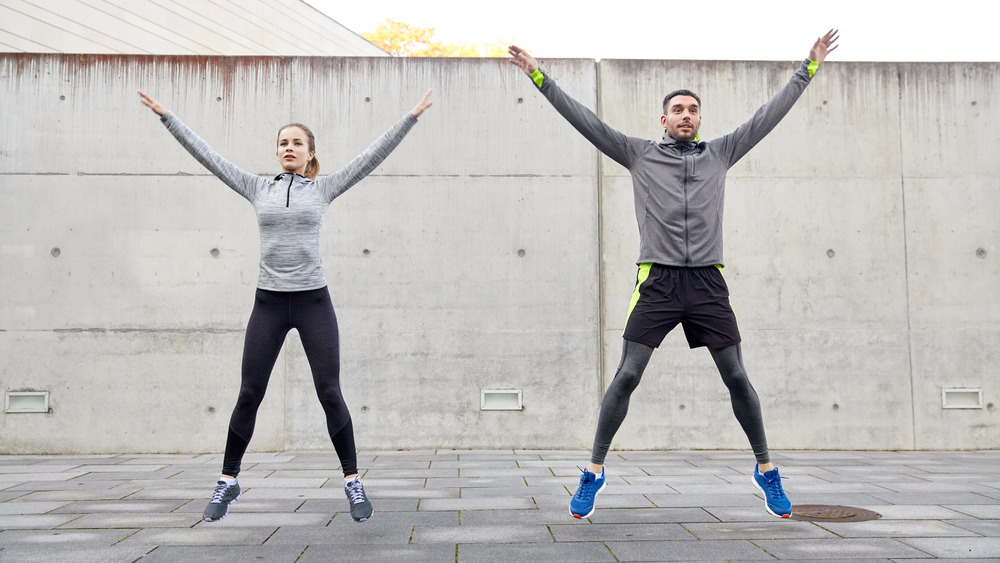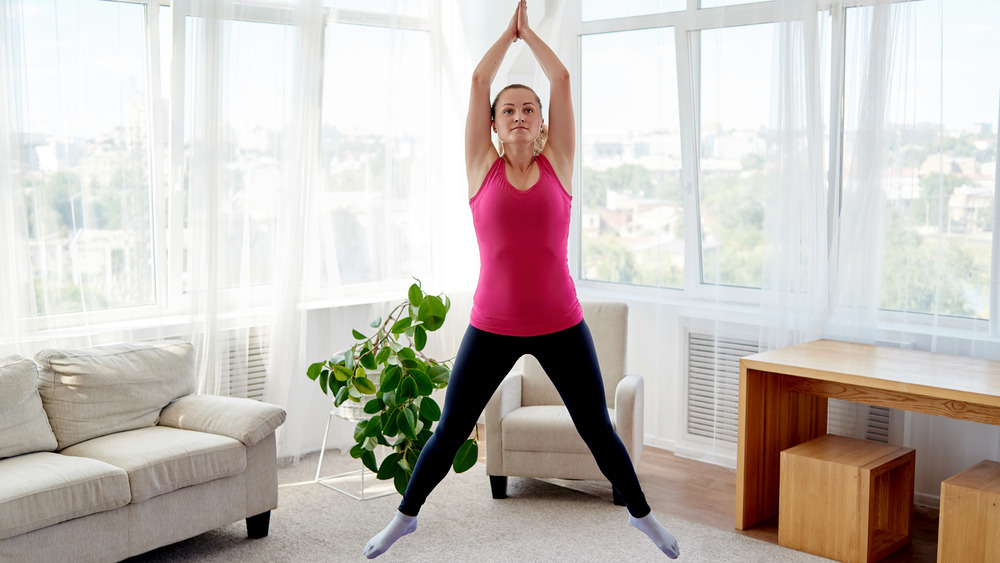If You're Having Trouble With Jumping Jacks, Here's Why
Jumping jacks have moved from being a gym class warmup that you likely dreaded in elementary school, to a staple of nearly every high-intensity interval workout. But not everyone can easily handle the repetitive jumping and waving gestures, for a few reasons. If you're new to a bootcamp-style of exercising, you may you find yourself winded after only a few reps, simply because you lack cardio conditioning. But if you've been doing high-intensity training regularly, you may experience a muscle-based issue.
Jumping jacks are a great full-body exercise. They boost your heart rate quickly, and can be done anywhere. They work your abs, shoulders, hips, glutes, and quads, so if you feel the burn after just a few, that's not a surprise (via Healthline). But learning how to do them properly is important.
For those newer to jumping jacks, the good news is that over time, you'll get stronger and they'll get easier. You may be struggling to combine the coordination that it takes to jump out and back while moving your arms in unison, especially if simply jumping quickly already leaves you exhausted. Start slow and don't be afraid to take breaks at first.
Can jumping jacks injure you?
A small but real risk of injury exists, since the high-impact nature of jumping jacks means your knees and ankles are bearing a heavy load every time you land (via Healthline). But if you focus on good form, and wear supportive shoes while also picking a soft-but-stable place to land (like grass), you should be able to prevent most problems.
If your knees do start to hurt every time you come back to the ground, stop and skip the actual jump of the jumping jack. Instead, simply lift one foot at a time while doing the upper-body movement (via LIVESTRONG).
Another cause of pain could be tight hip flexors (the spot at the bottom of your torso and the top of your hip bones). If they're tight — which often happens to people who sit at a desk most of the day — you may want to add more yoga and stretching before hitting the high-intensity work. Jumping jacks pull on the hip flexors, and if they're tight, expect sore hips afterwards.
The final problem some women may struggle with is the sudden urge to pee during jumping jacks, since the motion puts a lot of pressure on the pelvic floor. Don't stress too much about this, since it's fairly common, especially for women who've recently given birth. If you notice it happening more often, though, you may want to check with your gynecologist, who might be able to prescribe exercises that can help you strengthen your pelvic floor (via Shape).

